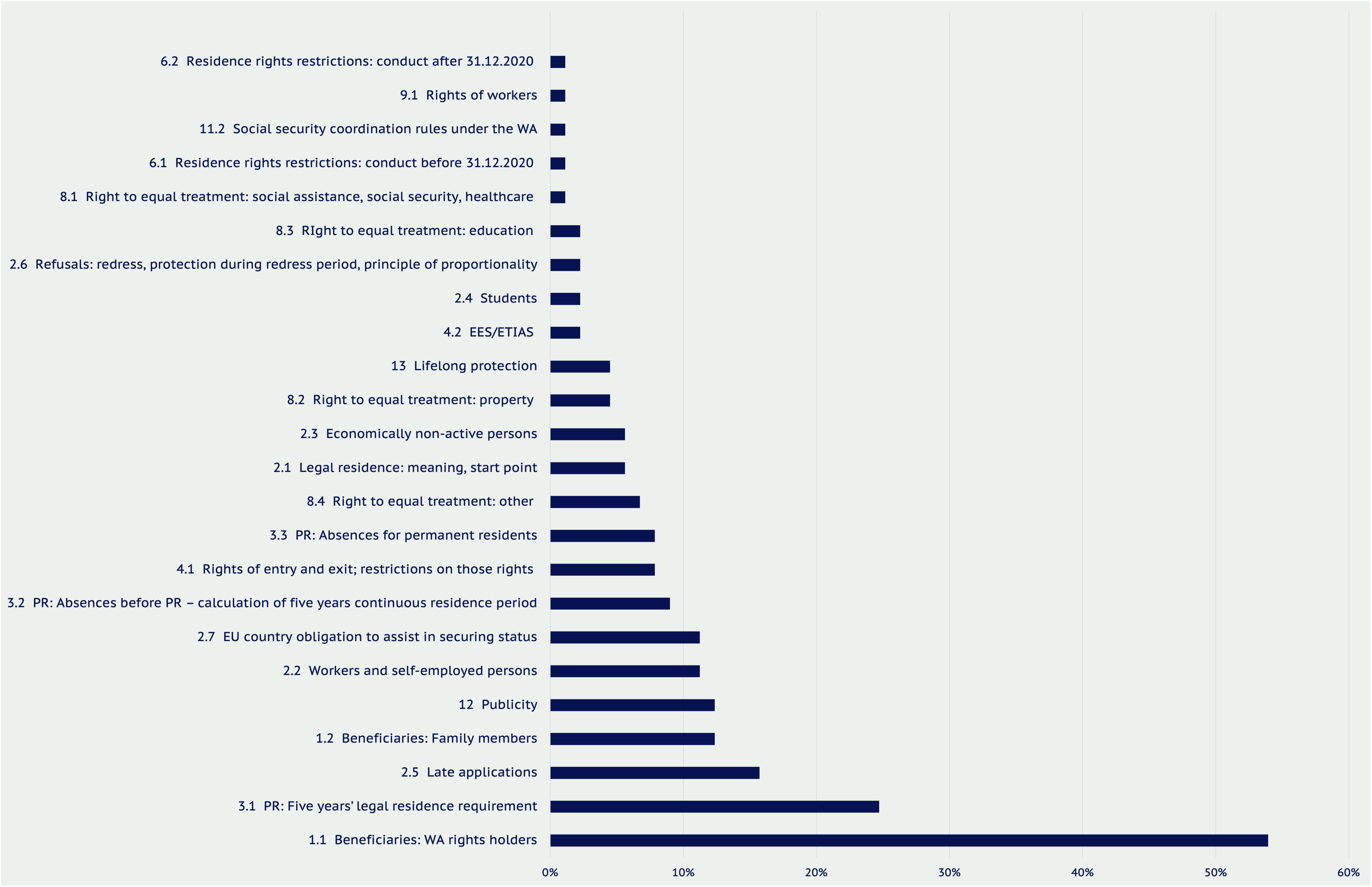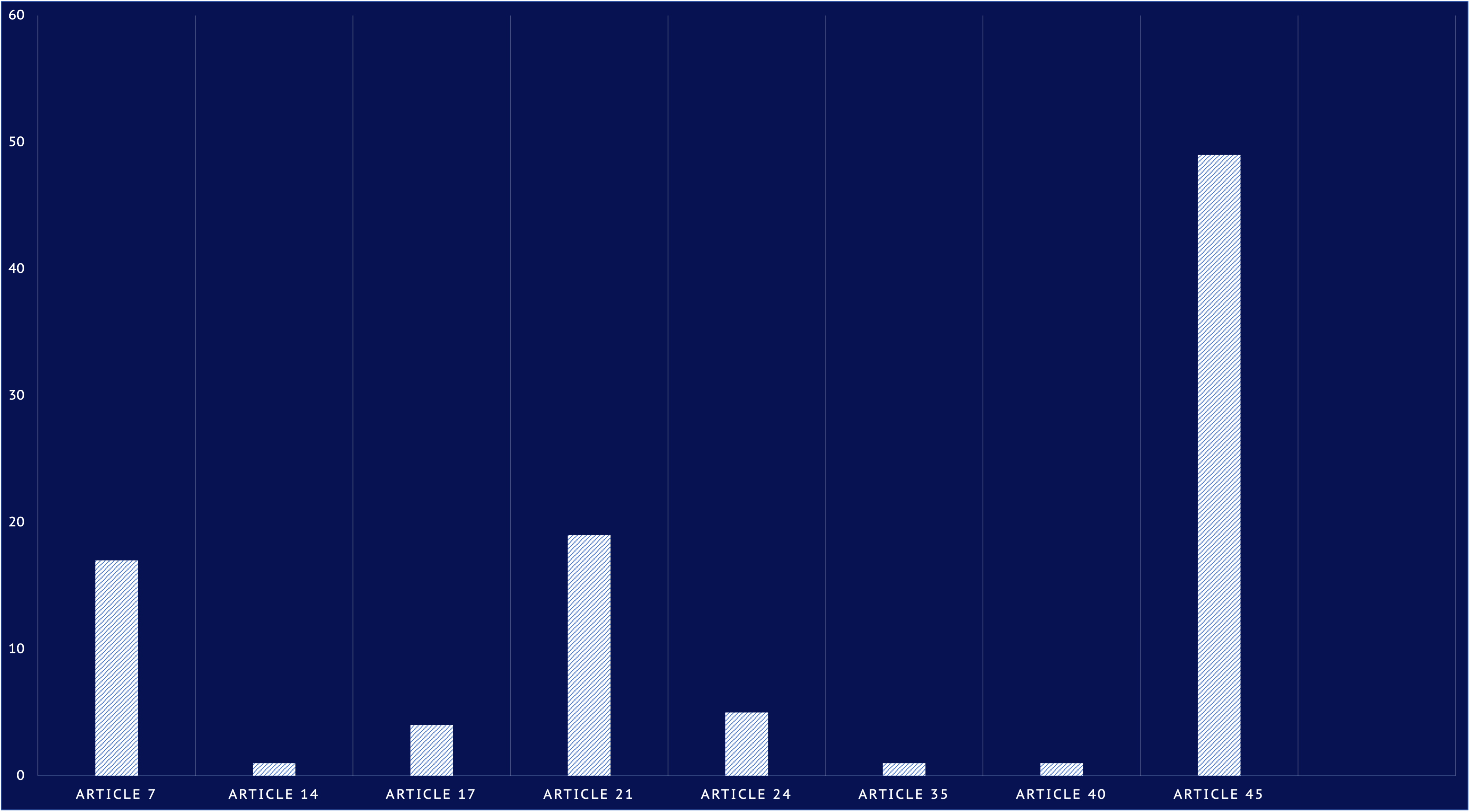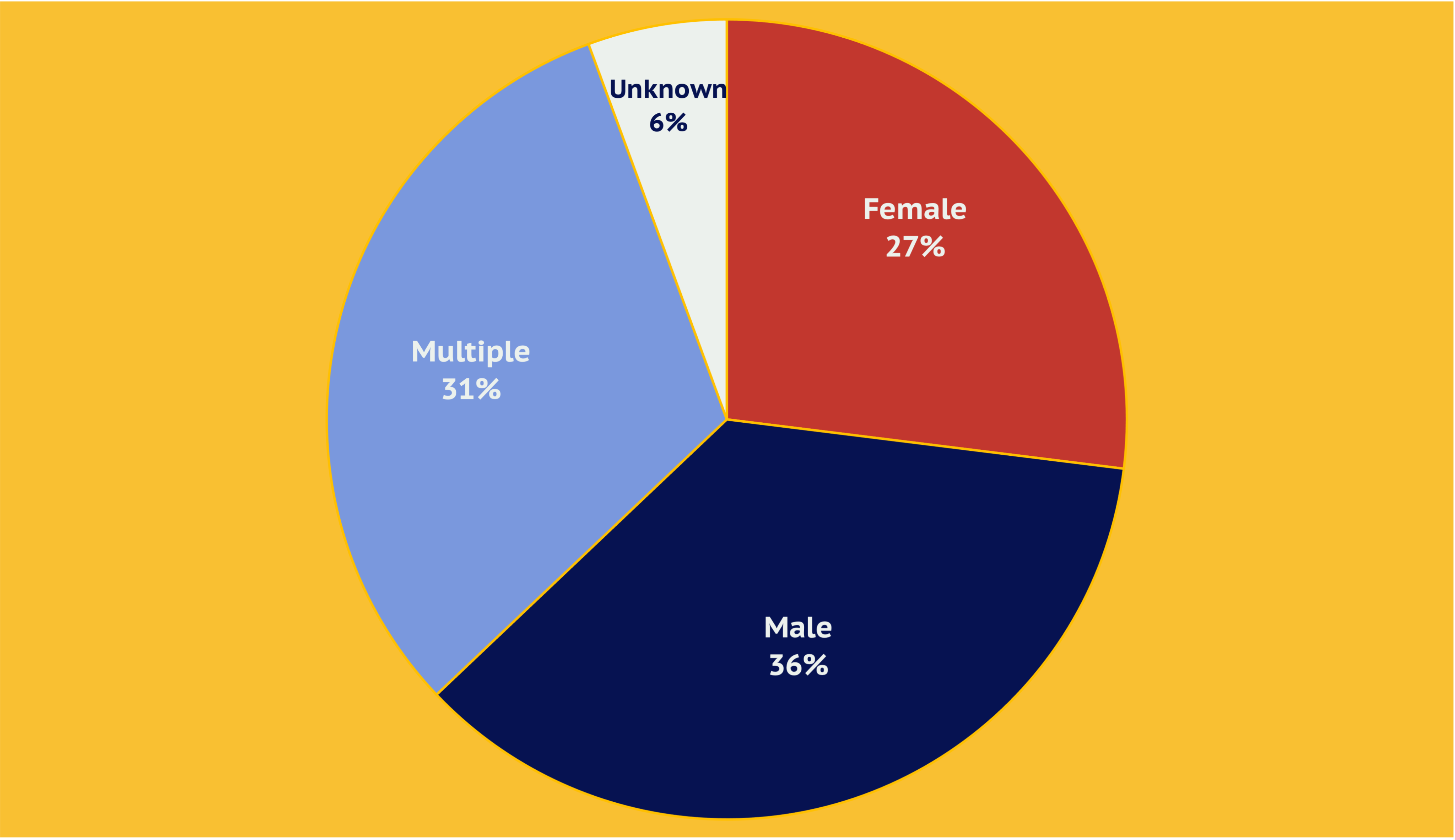Withdrawal Agreement Implementation and the EU Charter of Fundamental Rights:
UK Nationals in the EU
Supporting WA Beneficiaries in Exercising their Rights
British in Europe and volunteers in the country groups have been supporting UK citizens and their families living in the EU, providing clear and accurate information on citizens’ rights.
The ICE project (ADD LINK) investigates the implementation of the EU Charter on Fundamental Rights through the application of the EU UK Withdrawal Agreement (WA) by 11 Member States and assesses its impact on UK citizens and their family members living in the EU.

Withdrawal Agreement & the EU Charter of Fundamental Human Rights
The Withdrawal Agreement (WA) is an international agreement between the EU and the UK.
When EU countries implement the WA citizens' rights provisions into national law or make decisions about it, the EU Charter of Fundamental Rights applies.

During the ICE project, we asked country group volunteers to collect data on cases worked on and to estimate numbers of similar cases.
We also recorded cases that came in directly to BiE via our general enquiries.
|
Between 1 March 2024 and 16 July 2025, we recorded 89 individual cases while the total number of estimated similar cases equates to 615. Number of cases recorded per country and approximate number of similar cases: |
||
|---|---|---|
|
Country |
Individual cases |
Approximate number of similar cases |
|
Austria |
13 |
105 |
|
Belgium |
1 |
20 |
|
Bulgaria |
1 |
10 |
|
Czechia |
1 |
20 |
|
Denmark |
8 |
15 |
|
France |
4 |
30 |
|
Germany |
3 |
5 |
|
Greece |
6 |
20 |
|
Hungary |
1 |
5 |
|
Luxembourg |
0 |
- |
|
Malta |
11 |
105 |
|
Poland |
1 |
0 |
|
Portugal |
1 |
10 |
|
Spain |
3 |
25 |
|
Sweden |
34 |
245 |
We added categories to each case, with up to three categories selected per case. The most frequent category relates to the rights of WA beneficiaries themselves i.e. rights holders, followed by permanent residence, a key current issue in 2025 and 2026.
Frequency of categories (% of cases including the category)
The key rights grandfathered under the WA for UK nationals living in the EU are residence rights but only in the country of residence at the end of transition, which is their host State under the WA.
The main WA articles referred to cases relate to residence rights as well, including Articles 10, 13, 15 and 18.
Frequency of Withdrawal Agreement articles referenced
The articles of the EU Charter of Fundamental Rights most often relevant in relation to the cases we documented concern the rights of individuals and their family members.
The most frequently referenced articles were:
- Article 7 on respect for private and family life,
- Article 21 on non-discrimination,
- Article 24 on the rights of the child, and
- Article 45 on free movement.
Frequency of EU Charter of Fundamental Rights articles referenced
We have also collected sex-disaggregated data. There has been little analysis to date of the gender impact of the Withdrawal Agreement and we collected this data with the aim of trying to assess better whether there are inequalities between women and men in relation to the exercise of their rights. A gender distribution analysis of the cases that we have dealt with shows a higher number of cases involving men (36%) than women (27%), although the percentage of cases affecting both was also high (31%).
While British in Europe has offered extensive general support, individuals requiring specific legal advice tailored to their unique circumstances have been encouraged to contact Your Europe Advice to obtain confirmation of their rights under the Withdrawal Agreement.
In more complicated cases, when there is an indication that national authorities may not be correctly applying the Withdrawal Agreement rules, we recommend that the UK national consult Your Europe Advice for specific confirmation of their rights. This also ensures that their case is officially logged with the European Commission.
Distribution of Your Europe Advice requests
Recommendations
Based on BiE’s experience of implementation of the Withdrawal Agreement (WA) since 2020 and in particular during the ICE project, we make the following recommendations:
Up to date information and instructions on upgrading to permanent residence
In 2025 and 2026, the majority of WA beneficiary rights holders’ and their family members’ status under the WA will evolve and upgrade to permanent residence. During this period, we recommend:
- Ongoing monitoring of the process by the European Commission;
- Clear and regular reminders from the European Commission to national authorities concerning the requirements for the acquisition of permanent residence and the rules around absences;
- Requests to national authorities to keep their websites up to date and that central instructions are sent to the authorities at national/regional/local level;
- Central publicity and information to WA beneficiaries about the evolution of their status and how they may obtain a new residence card evidencing their acquisition of permanent residence.

Publicity about the EES and ETIAS systems and how they will apply to WA beneficiaries
Providing clear information about how WA beneficiaries and their family members will be affected by the new EU entry/exit systems is crucial. Practical guidelines on how these systems will work on the ground and across different entry and exit points across the EU (e.g. airports, train stations, ports) are key.

Collecting data on WA implementation across the EU
Our work has highlighted the need for more up to date statistics concerning issues that arise with WA implementation. This is particularly important during 2025 and 2026 as upgrades to permanent residence occur and the new EES system is put in place.

Strategic litigation
There are several key questions concerning WA implementation that would benefit from referral to the Court of Justice of the EU (CJEU). For example, whether family reunification rights of WA beneficiaries can only be used once for any individual family member remains an open question. The Commission has not to date brought any cases against Member States in relation to potential breaches of the WA relating to citizens’ rights, and citizens’ rights groups have to date lacked funding to initiate strategic litigation.

Funding organisations that provide advice to WA beneficiaries
Information on issues concerning WA implementation is largely identified through citizens’ rights organisations working across the EU and through Your Europe Advice, the EU’s outsourced advice service, where WA beneficiaries regularly turn for advice on their legal position. Both citizens’ rights organisations representing the interests of WA beneficiaries, and Your Europe Advice must continue to be funded to do this work.









